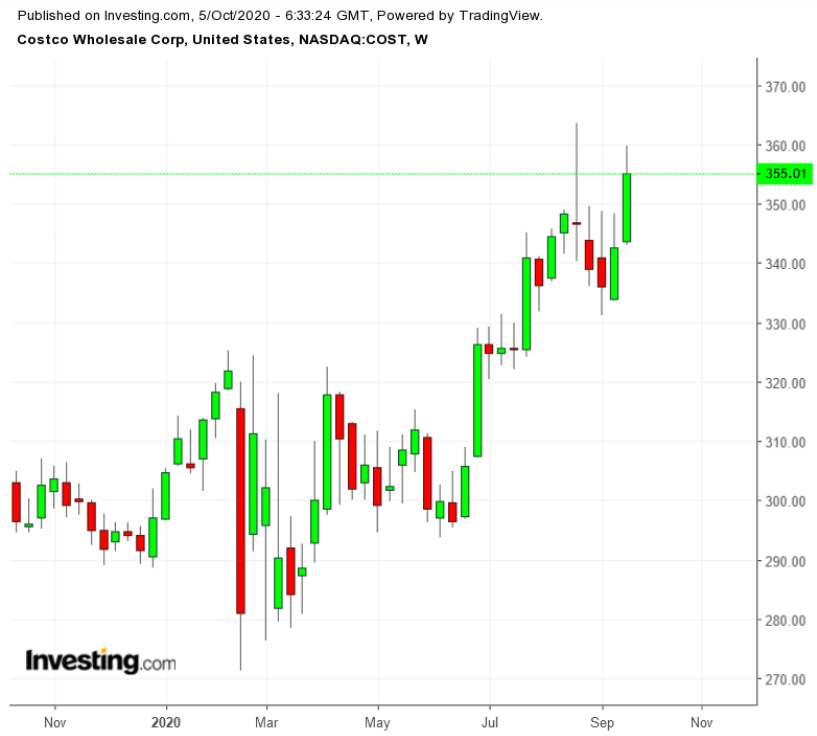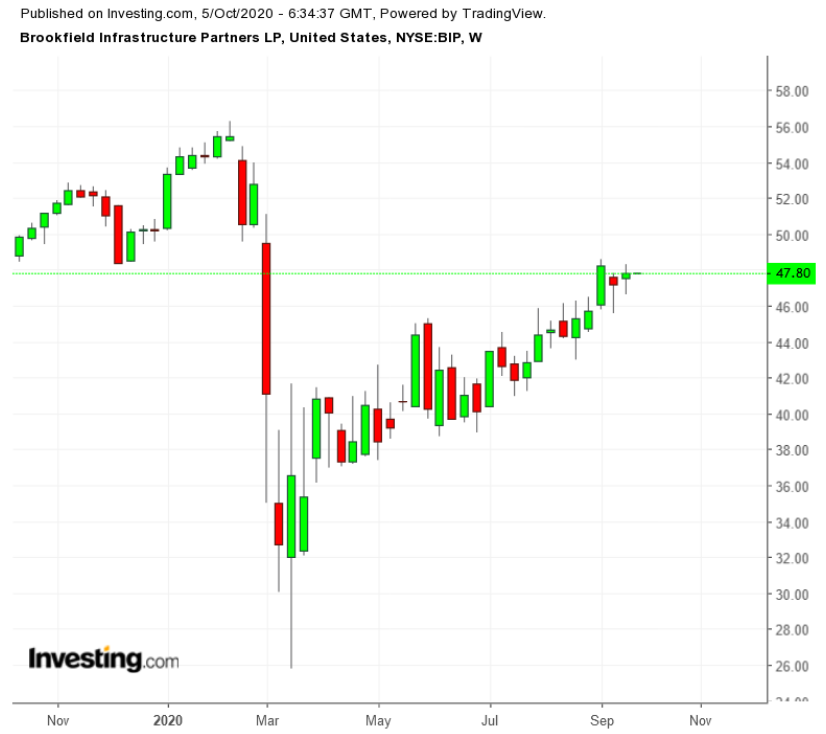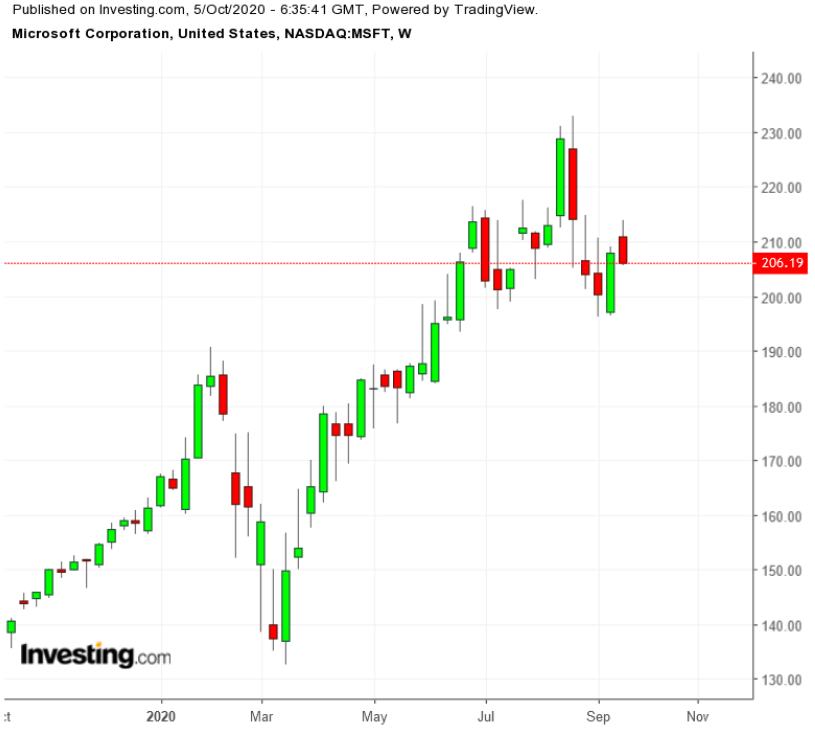Compared with holding safe haven government bonds or stashing money in a low-rate savings account, investing in stocks has always been a riskier propsition. Equity investors expose themselves to a variety of market perils, the biggest of which are recession, earnings setbacks and rising inflation that prompts central banks to hike interest rates.
After a strong rebound from the pandemic-induced stock selloff in March, the markets have entered a risky phase with the US presidential elections just round the corner and the second COVID-19 wave hitting a variety of global economies. Add to that US President Donald Trump's recent coronavirus diagnosis making the outcome of elections even more uncertain.
Still, for those who want to be in the market for the long haul, though it may be impossible to completely avoid risk, smart investing can minimize potential pitfalls. The best way to do this is to diversify your portfolio and include stocks that have low betas: equities that are less volatile than the overall stock market.
Note that these stocks will still fall during a severe market downturn, but with less dramatic moves than the high-growth players. They will also rebound more quickly when a market correction occurs. Below are three examples you might consider if you're looking to add some safety to your portfolio.
1. Costco Wholesale
Large U.S. retailers are considered defensive. That's because these companies recover quickly after an initial shock given the nature of their business which generally includes staples consumers need no matter the economic situation. Among this cohort, Costco Wholesale (NASDAQ:COST) is one of our favorites.
Costco’s extensive, international network—as of the end of 2019 it operated almost 800 wharehouses globally, close to 550 of which are in the US—provides the corporation with massive power to squeeze its suppliers, plus, its rapidly-improving online sales capacity gives it safe haven status. One factor that favors this retailer over others is its large membership base.
With a substantial part of its business focused on selling merchandise at the low profit margins, the warehouse shopping club has about 99 million members. Last year they paid the company $3.35 billion in membership fees alone.

After more than doubling during the past five years, Costco stock doesn’t come cheap. It closed on Friday at $355.01. However, many analysts believe that after the pandemic, Costco will get stronger, delivering yet more upside for savvy investors.
“We see a strong case for outperformance driven by continued market share gains and a special dividend, which could potentially come next year,” Oppenheimer analyst Rupesh Parikh said in a CNBC report.
“We view COST as both an attractive shorter-term beneficiary of money flows related to coronavirus fears and a longer-term winner, which should help to drive continued outperformance.”
With that strong market position, investors might also appreciate the added value of the company’s ability to provide regular cash during the market volatility. Costco provides a $0.70 a share quarterly payout which has grown 12.7% per year during the past five years.
2. Brookfield Infrastructure Partners
Toronto-based Brookfield Infrastructure Partners (NYSE:BIP) is another defensive stock that could provide some stability in the event of high market volatility. BIP owns and operates utilities, transport, energy, and communications infrastructure companies globally. It manages a portfolio with assets spanning five continents.
These include utilities and power transmission systems in North and South America, 37 ports in North America, the UK, Australia and Europe, approximately 3,800 kilometres of toll roads in South America and India, and large rail operations in Australia and South America.
The company’s objective is to generate long-term returns of 12% to 15% on equity and provide sustainable distributions for investors while targeting annual distribution growth of 5-9%.
According to Brookfield, its strategy is to acquire high quality businesses on a value basis, actively manage operations and opportunistically sell assets to reinvest capital into the business.

In the latest pandemic shock to the global economy, BIP faced no major disruption to its cash flows as its businesses were deemed essential. In a presentation to investors, the company said it expects year-over-year profit growth.
Looking at the numbers, there's no doubt the company has been successfully executing its plan. During the past five years, BIP shares have more than doubled, as has its dividend. The stock is up more than 7% this year. At $47.80 as of Friday's close, BIP stock still looks attractive, especially with a current dividend yield of more than 4%.
3. Microsoft
Want a solid technology stock that also has defensive characteristics? Microsoft (NASDAQ:MSFT) perfectly fits the bill.
Many investors mistake the Redmond, Washington-based software giant for a pure technology play, viewing it as a stock still in a great growth mode, something to pick up for quick gains. In our view, however, Microsoft is a great defensive play that investors should buy, to hold over the long run.

The company has rewarded its investors massively over the past five years, with shares up about 356%. Microsoft has benefited from an array of success: a surge in technology investments, its foray into cloud computing and the strength of its core Office products.
Following a massive transformation, spearheaded by Chief Executive Satya Nadella, which started more than five years ago, Microsoft has become one of the most powerful players in the fast-growing cloud-computing arena, commanding the segment's second largest market share, with only Amazon (NASDAQ:AMZN) ahead.
Its rock-solid dividend—now yielding 2.24% at Friday's closing share price of $206.19—and excellent track record on payouts adds to the stock's appeal, particularly during an uncertain economy. Since 2004, when the tech giant first began paying a dividend, its payout has swelled more than four-fold.
As well, companies that pay reliable dividends are in a much better position to withstand selling pressure than those that don’t, making them less volatile in a bear market since they provide guaranteed, recurring income to shareholders.
After a relentless rally this year, Microsoft stock has taken a breather, falling 12% from the record high of around $233 it hit in early September. Investors might get a better entry point if we see more weakness in the coming days.
Bottom Line
Buying stable stocks, which might also pay a dividend is a winning strategy when volatility spikes and risks to economic growth are on the rise. Costco, BIP and Microsoft fit nicely into this defensive strategy. You can rely on their growing payouts, even while markets correct and find a new equilibrium.
